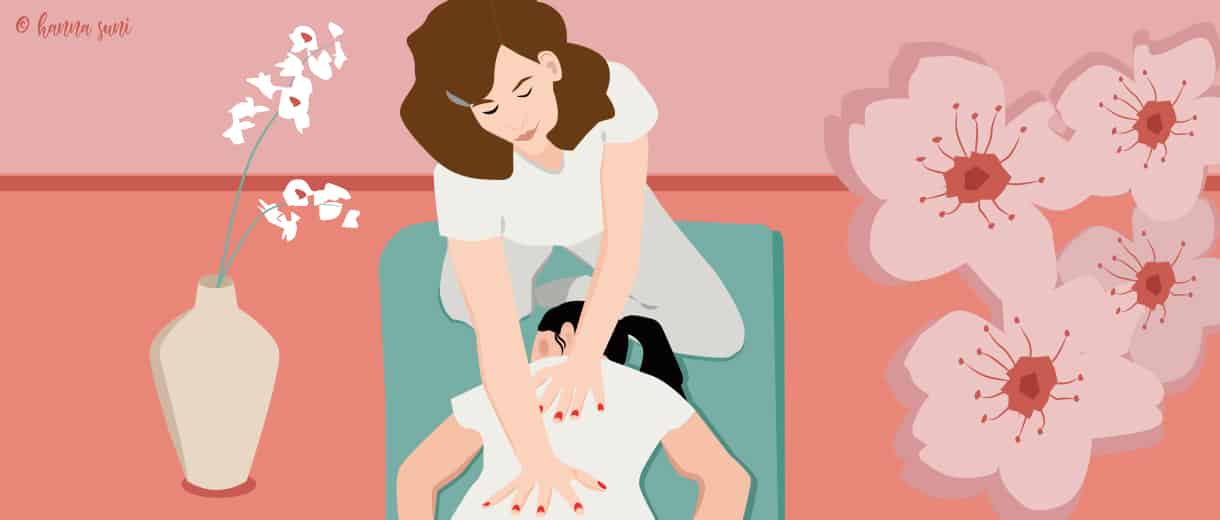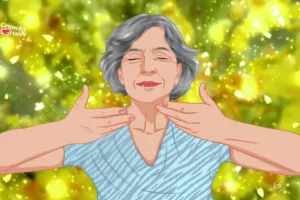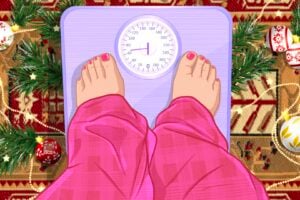Anxiety & Weight Gain: Why Shiatsu Massage May Help
Does anxiety, mood swings and gaining weight sound familiar? Menopause might not always be the main cause. Stress can significantly impact our ability to maintain a healthy weight, especially at midlife when we are often juggling parenting, caregiving and work.
If your scales aren’t showing you any love, maybe it’s time to look into your lifestyle. Practising relaxation skills, such as yoga, stretching, deep breathing or meditation could be the first step towards your new approach to wellbeing. Shiatsu massage, in particular, is a popular stress management technique that might help you control your weight especially when related to overeating.
How Does Shiatsu Work?
Officially recognized in Japan as a paramedical practice since 1952, Shiatsu -meaning “finger pressure”- is a form of ‘bodywork’ that it is believed to alleviate conditions, restore balance, and promote health. Therapists use kneading, pressing, soothing, tapping, and stretching techniques; sessions are intuitive and tailored to the client’s exact needs, whatever they may be.
Performed without oils through light, comfortable clothing, Shiatsu can help you connect with what is important to you. It can provide the drive and focus your aim for. The basic concept behind this holistic practice is to treat the whole body as one part instead of working on a specific area restoring your physical, psychological, muscular and circulatory system. In particular, in the case where the client’s energy is low or deficient, the practitioner uses specific techniques to enhance and vitalize the Qi (Chi). When patients are over-stressed or anxious, the therapist employs techniques to disperse the “excess” energy. In this way, the Qi (Chi) is regulated.
I’ve been always quite anxious and overweight until I understood the link between the two things – says Angela S., 46, from London -. Shiatsu has helped me to reconnect with my body and energy. After a couple of sessions, I’ve started to sleep better and that has re-established my inner clock. When I understood where my blockage came from I naturally started to stop using snacks as comfort food to respond to stress.
Regular use of this practice is a good way to maintain and improve vitality. In general, one Shiatsu session per month may work well, but for ladies managing a high-stress job and family demands it may be required more often. Thanks to these massages the body begins to re-adjust itself: the receivers are helped to become more aware of their body/mind as an integrated whole, on either a conscious or subconscious level. They also start to understand those areas of tension or weakness and through this process, healing occurs.
What worked for me was establishing a trustworthy relationship with the therapist – says Deborah M., 61, from Leeds-. The specialist needs to assess your overall wellbeing before proceeding. You’d be surprised how often your body’s response to being overweight is linked to something you may be inadvertently doing on a regular basis.
Is there any good evidence?
While the evidence is limited, it is worthwhile to note that the risk is low and there is some research that endorses the benefits of Shiatsu massage. Here are two interesting studies which explore the therapy’s pros and cons:
- The Effects and Experiences of Shiatsu: A Cross-European Study
- The Effects of Shiatsu: Findings From a Two-Country Exploratory Study
How to find a practitioner
Remember that shiatsu massage is just a complementary therapy for weight loss and you cannot use it as a substitute for working out and clean eating. To be successful, you’ll want to focus on eating a healthy, calorie-controlled diet, and getting enough physical activity each day. If you want to add massage to your routine, find a licensed specialist in your area who can help you to keep your body feeling strong, flexible, and relaxed.
US – Organization for Bodywork Therapies of Asia (AOBTA)
UK – The Shiatsu Society





